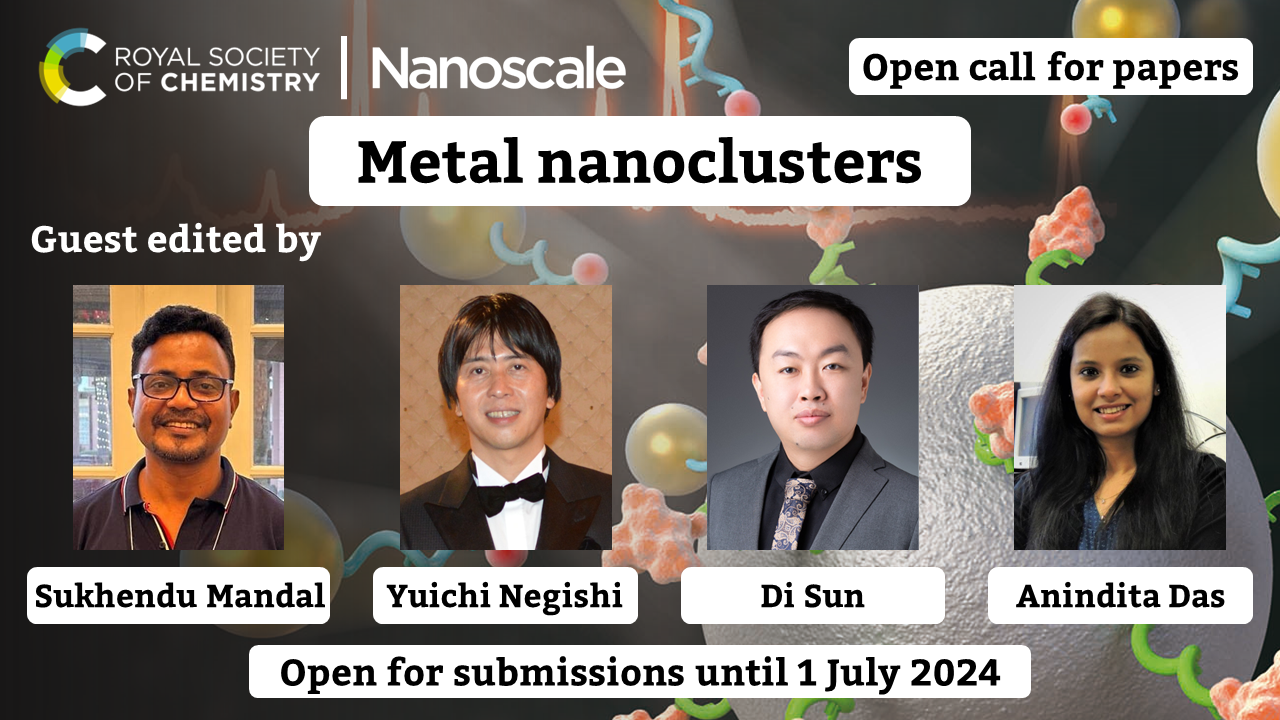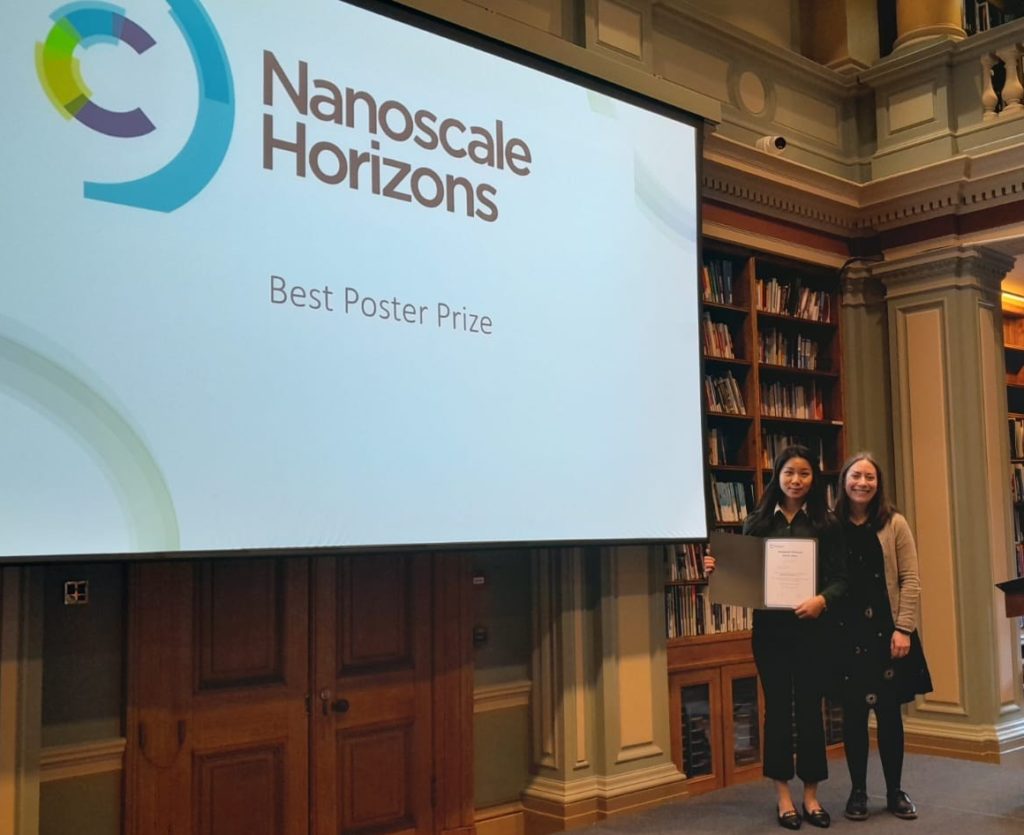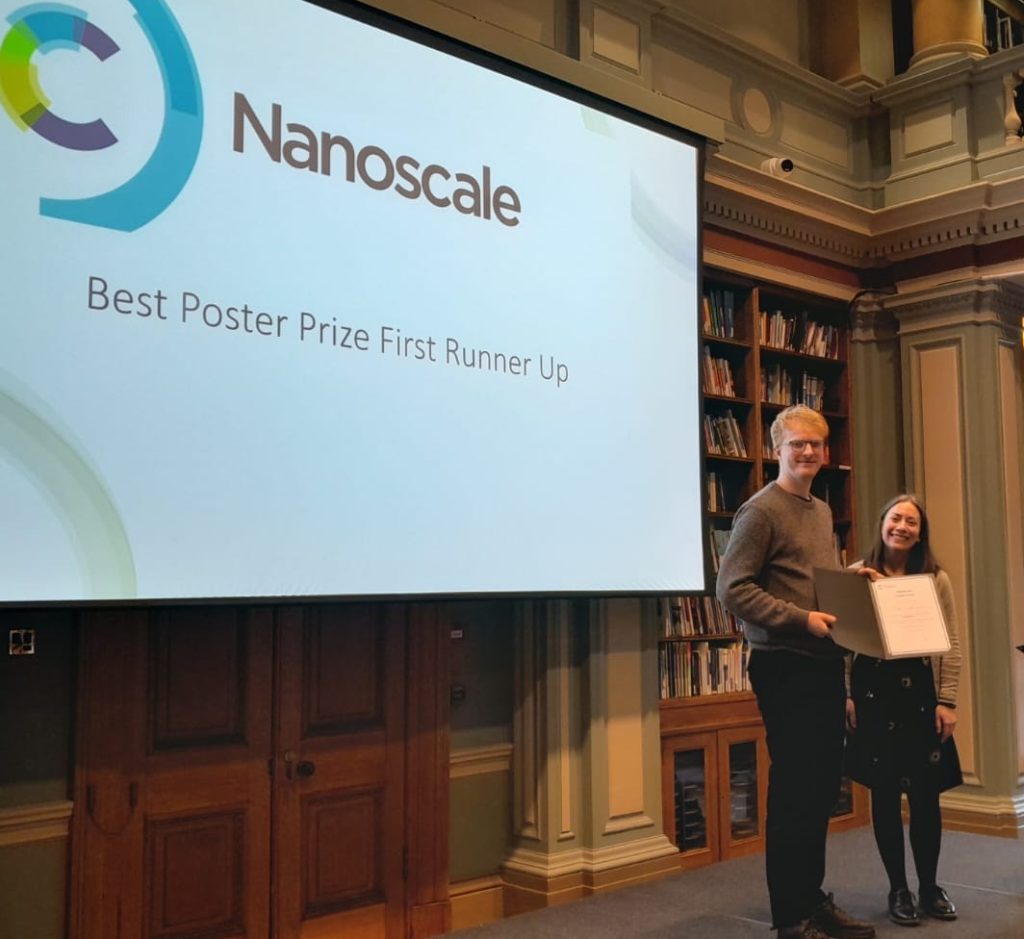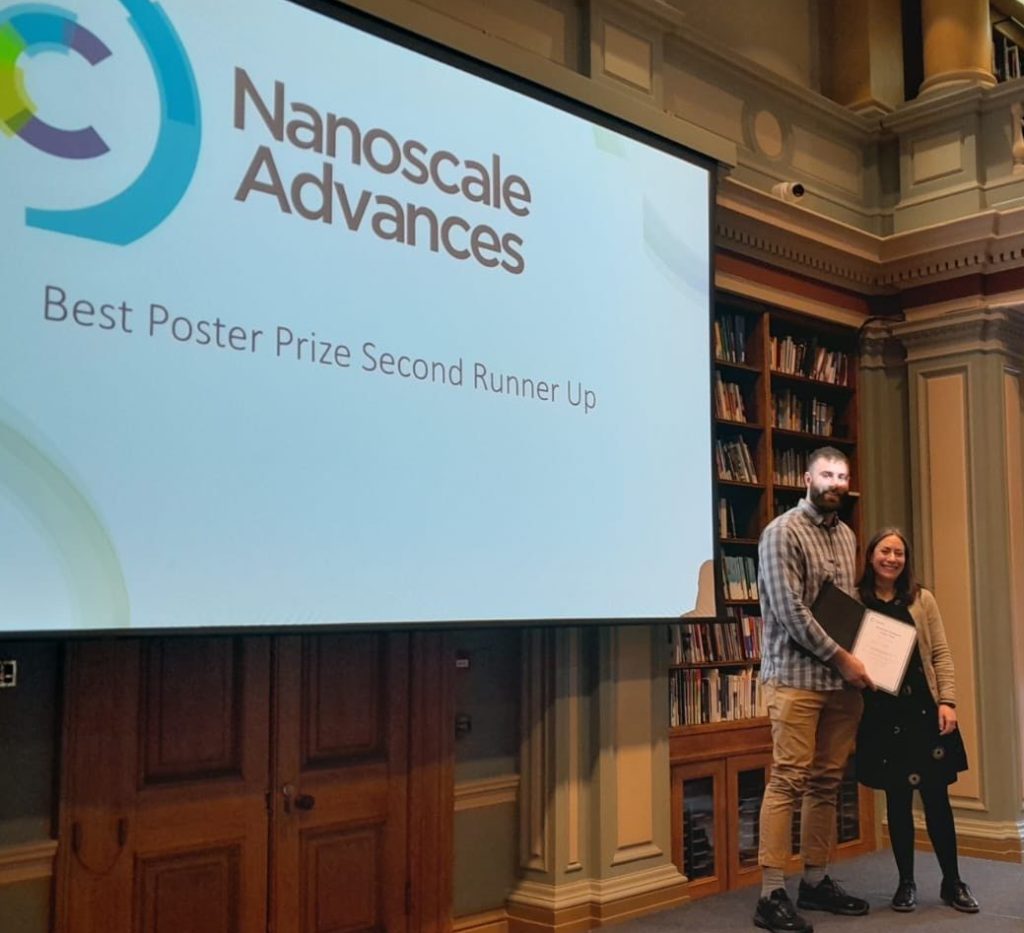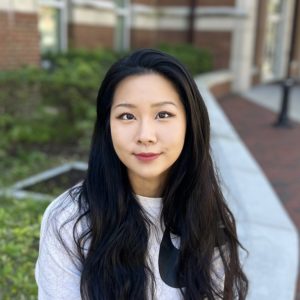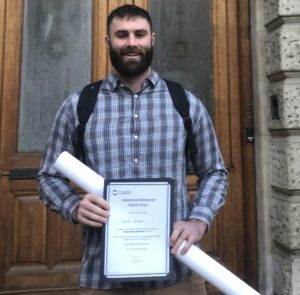Open call for papers – Targeted biomedical applications of nanomaterials
Submissions deadline extended until 14 July 2024
We are delighted to announce our latest open call for submissions to a themed collection on Targeted biomedical applications of nanomaterials to be published across Nanoscale, Nanoscale Advances, Journal of Materials Chemistry B and Materials Advances.
This collection is guest edited by Professor Dhiraj Bhatia (IIT Gandhinagar, India), Professor Mukesh Dhanka (IIT Gandhinagar, India), Dr Anjali Awasthi (University of Rajasthan, India), Professor Kamlendra Awasthi (Malaviya National Institute of Technology Jaipur, India) and Professor Kaushik Chatterjee (IISc Bangalore, India).
Nano-biomaterials, i.e., nanomaterials derived or inspired from biological molecules, have gained substantial influence in the recent times in terms of their fine tunability, scale-up potential, excellent interface and adaptation with biological systems. Multiple different approaches involving physical and computational modelling, chemical structure synthesis and characterization and biological modifications have been used to develop next generation bionanodevices that can interface with biological systems in a very focussed manner. Some of the recent devices have already made their way to clinical trials and many others are in different stages of the pipeline for translational applications.
This new collection in Nanoscale, JMC B, Nanoscale Advances and Materials Advances will focus on the design of multifunctional hybrid nanomaterials for different applications and on interfacing nanomaterials with biological systems for translational studies. The scope of this collection loosely aligns with the 2023 International Conference on Nanomaterials in Biology (ICNB 2023), held at the Indian Institute of Technology Gandhinagar along with Soft Materials Research Society, from 19–22 November 2023. Potential topics for the collection include but are not limited to,
- 3D Bioprinting
- Big Data in Nanosciences
- Bioinspired and Biomimetic Materials
- Biological Nanodevices and Sensors
- Engineered Nanomaterials
- Nanomaterials and Environmental Effects
- Nanomaterials for Bioenergy Applications
- Nanomaterials for Sustainable Agriculture and Food Science
- Nanomaterials in Biological Uptake and Nanotoxicology
- Nanomaterials in Gene and Drug Delivery
- Nanomaterials in Tissue Engineering and Medicine
- Polymer Supramolecular Chemistry and Applications
- Scaffold design and fabrication
Submit your work by 14 July 2024
How to submit
Submissions to the collection should fit within the scope of Nanoscale, Nanoscale Advances, Materials Advances or Journal of Materials Chemistry B – Please see the journals’ websites for more information on the journal’s scope, standards, article types and author guidelines. We encourage authors to select the journal most relevant to their research. All manuscripts will undergo the normal initial assessment and peer review processes, if appropriate, in line with the journal’s high standards, managed by the journal editors. Accepted manuscripts will be added to the online collection as soon as they are published and they will be featured in a regular issue of the relevant journal. Please note that peer review or acceptance are not guaranteed.
If you would like to contribute to this themed collection, please submit your article directly through the journal submissions platform. Please mention that your submission is a contribution to the Targeted biomedical applications of nanomaterials collection in the “Themed issues” section of the submission form and is in response to the Open Call. The Editorial Office reserves the right to check suitability of submissions in relation to the scope of both the journal and the collection, and as such inclusion of accepted articles in the final themed collection is not guaranteed.
If you have any questions about the collection or the submissions process, please do contact the Editorial Office at materialsb-rsc@rsc.org and they will be able to assist.
We look forward to receiving your latest work and considering it for this collection!












